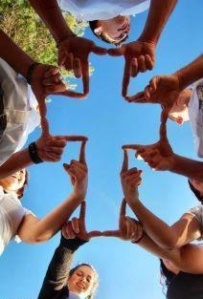This week, we launch the following courses in our For Groups format:
Three Prayers You’ll Want to Pray with George Donigan
Lessons in Belonging with Erin Lane
Introduction to Church History with Eric Williams
How to Share Your Faith with John Bowen
Making Sense of the Cross, Parts 1, 2, and 3 with David Lose
Crisis Communications with Meredith Gould
Three Prayers You’ll Want to Pray offers an engaging encounter with three different prayers that Methodist Pastor George Donigan says can help us focus and enrich our prayer lives: The Lord’s Prayer, the Prayer of Dag Hammarskjold, and the Serenity Prayer. This course would be ideal for a small group centered around prayer or spirituality, or a ministry within your congregation that meets regularly. Alternatively, you might offer this course for a small group of seekers or newcomers.
Erin Lane’s Lessons in Belonging is a wonderful course that gets people thinking and talking about why membership in a faith community matters. It’s an ideal course to offer visitors and newcomers, or groups of young adults who are feeling the urge to return to regular church attendance. And Erin’s book, Lessons in Belonging from a Church-Going Commitment-Phobe, is a thought-provoking supplement to this course.
Those seeking to learn more about our church’s history might enjoy taking Eric Williams’s Introduction to Church History, which surveys the highs, lows, and important milestones from Jesus’ day to our own. It’s a wonderful overview of our church’s rich history as well as a great refresher for seasoned students. This course would complement an Inquirers Class or Confirmation Series as well.
As we continue to shape disciples within our faith communities, offering John Bowen’s How to Share Your Faith can help folks better understand the Gospel we have to share, why sharing our faith is critical to our lives and the lives of others, how to invite someone to church, getting over fears and frustrations that come with faith sharing, and how to help your church become an evangelizing community. Why not offer this course to the various ministry groups within your church, from Eucharistic Visitors to Greeters and Hospitality Hosts, to youth groups and adult formation groups? This is a course that can benefit everyone who wants to spread the Good News they’ve learned but may not be sure how to go about doing so in a life-giving and encouraging way.
David Lose’s excellent series, Making Sense of the Cross, can help Christians wrestle with the big questions and mysteries around Jesus’ crucifixion, the very “crux” of the Christian faith. This series is an ideal one for those who seek a deeper understanding of what we mean when we think, pray, and speak about the cross. David presents a complex subject in a very smart but accessible format. Each of the three parts can be used independently, or as a series, perhaps in a fall Adult Formation program.
Finally, Meredith Gould offers a course that should be required learning for all in church leadership: Crisis Communications helps anticipate and plan for minor and major events and catastrophes that can plague any organization. It’s better to be prepared with appropriate ways to respond to these situations rather than reacting in fear and ignorance after the fact. We encourage you to share this course with your clergy and lay leaders so that, in moments of crisis, they can effectively and healthily care for their communities, and be a source of strength, reassurance, and peace for those watching events unfold.
We continue to give thanks for all of you who are using these courses to enrich your formation offerings and shape disciples — and we’d love to hear how you’re using ChurchNext For Groups! Visit us on Facebook and share your story!
 different sources: the full Serenity Prayer (the shorter version of which is familiar from 12-step programs), the Prayer of Dag Hammarksjold, and the Lord’s Prayer, taught to us by Jesus himself.
different sources: the full Serenity Prayer (the shorter version of which is familiar from 12-step programs), the Prayer of Dag Hammarksjold, and the Lord’s Prayer, taught to us by Jesus himself.





